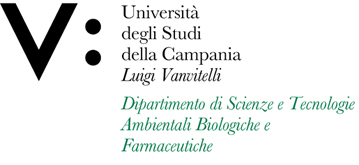Sandro COSCONATI
Insegnamento di CHIMICA FARMACEUTICA E TOSSICOLOGICA I
Corso di laurea magistrale a ciclo unico in FARMACIA
SSD: CHIM/08
CFU: 12,00
ORE PER UNITÀ DIDATTICA: 96,00
Periodo di Erogazione: Annualità Singola
Italiano
| Lingua di insegnamento | ITALIANO |
| Contenuti | La prima parte dell’insegnamento è dedicata alla descrizione, a grandi linee dei principi di farmacocinetica e farmacodinamica, che rappresentano il fondamento formativo essenziale per la comprensione dell’attività e dell’utilizzo dei farmaci. La seconda parte comprende, invece, lo studio sistematico dei chemioterapici quali antibatterici, antimicotici, antiprotozoari, antivirali, antifungini ed antitumorali. Il corso si propone di fornire conoscenze sulle relazioni tra la struttura e l’attività dei farmaci trattati, sul modo in cui essi esprimono la loro azione biologica, nonché sugli impieghi terapeutici. |
| Testi di riferimento | 1. Gasco, Gualtieri, Melchiorre. Chimica Farmaceutica. Casa Editrice Ambrosiana. |
| Obiettivi formativi | Lo scopo del corso è quello di fornire allo studente competenze che gli permettono di: 1) conoscere il meccanismo d'azione molecolare di un farmaco ed in particolare i tipi di legami ed i fattori sterici coinvolti nell'interazione farmaco-bersaglio molecolare; 2) conoscere le principali classi di farmaci che interagiscono con bersagli posti nelle cellule ospite; 3) applicare le conoscenze apprese per comprenderne le sintesi generali, le proprietà chimico-fisiche, i meccanismi d'azione, le relazioni struttura-attività, nonché l'uso e gli aspetti chimico-tossicologici. |
| Prerequisiti | Conoscenze e abilità fornite dal corso di Chimica Organica I |
| Metodologie didattiche | Il corso è articolato in 96 ore di lezioni frontali e prevede la frequenza obbligatoria. La frequenza verrà registrata mediante raccolta delle firme all’inizio di ogni lezione. Lo studente non potrà assentarsi dalle lezioni per più del 25% delle ore. |
| Metodi di valutazione | Durante lo svolgimento del corso sono effettuate due prove scritte in itinere della durata di 180 minuti ciascuna, che avranno come oggetto gli argomenti trattati fino alla data della prova stessa. Le prove saranno a risposta aperta ed atte a verificare le conoscenze acquisite dallo studente in merito ai principi di farmacocinetica, relazioni struttura-attività, meccanismo d’azione e procedure sintetiche dei farmaci trattati. Il superamento di tali prove di accertamento lo studente dalla prova scritta. Per il superamento della prova in itinere, lo studente dovrà ricevere una votazione di almeno 18/30. La votazione finale sarà calcolata facendo una media delle singole votazione ricevute dallo studente sulle due prove in itinere. |
| Altre informazioni | I docenti sono disponibili per ricevimento studenti nei giorni indicati sulla scheda insegnamento disponibile sul sito internet del dipartimento e su richiesta inoltrata via email. |
| Programma del corso | Parte Generale |
English
| Teaching language | Italian |
| Contents | In the first part of the course, principles of pharmacodynamics and pharmacokinetics will be discussed, these represent the bases to understand the activity of drugs as well as their use. In the second part, chemotherapeutics will be discussed in a systematic way. In particular, antibacterial, antiviral, antimycotic, and antitumor drugs will be discussed. The course aims at providing for each drug classes the structure-activity relationships, the mechanism of action as well as their therapeutic applications. |
| Textbook and course materials | 1. Gasco, Gualtieri, Melchiorre. Chimica Farmaceutica. Casa Editrice Ambrosiana. |
| Course objectives | The aim of this course is to provide the student with the knowledges of the mechanism of action of drugs and of the drug-target specific interactions; provide the informations on the main drug classes that interact with the target present in the host cells. After the course the student will be able to apply the acquired know-how to understand the drug syntheses, the physic-chemical properties, the mechanism of action, the structure-activity relationships as well as the chemo-toxicological aspect of drugs. |
| Prerequisites | Knowledges and skills furnished by the course of Organic Chemistry I |
| Teaching methods | The course is articulated into 96 hours of lectures and includes mandatory attendance. The frequency will be recorded by collecting signatures at the beginning of each lesson. The student cannot be absent from classes for more than 25% of the hours. |
| Evaluation methods | During the course of the course two written tests are held in itinere lasting 180 minutes each, which will focus on the topics covered up to the date of the test itself. The tests will be open-ended and aimed at verifying the knowledge acquired by the student regarding the principles of pharmacokinetics, structure-activity relationships, mechanism of action and synthetic procedures of the treated drugs. The passing of these tests of assessment the student from the written test. To pass the test in progress, the student must receive a grade of at least 18/30. The final vote will be calculated by averaging the individual votes received by the student on the two tests in progress. |
| Other information | Teachers are available for receiving students on the days indicated on the teaching form available on the website of the department and on request sent by email. |
| Course Syllabus | General Part |








